Any list of great American writers, would probably name Sherwood Anderson famed for Winesburg, Ohio, and Isaac Asimov, known for I, Robot as well as the Foundation series a Any list of great American writers would probably name Sherwood Anderson, famed for Winesburg, Ohio, and Isaac Asimov, known for I, Robot as well as the Foundation seriesCommas are a feature of sentence structure There is no word or phrase in English that requires one The formula "as well as" may appear properly with no commas at all, with one before or oneYou don't need a comma before "as well as" when it introduces words that are essential to the meaning of the entire sentence I like novels as well as short story books The Clean India movement applies to common citizens as well as politicians also The "as well as" phrase is enclosed with commas if–like a nonrestrictive clause–it can be left out without affecting the meaning of the main clause Novels , as well as short stories, get priorities in my life

Say Hello To The Exclamation Comma The Punctuation Mark You Never Knew You Needed Grammarly Blog
As in a sentence comma
As in a sentence comma-Here is the EXACT rule for Adverbable phrases and clauses when using Commas (which using an 'as' makes it an adverb) Commas with adverb clauses or phrase When an adverb clause or phrase is at the beginning of the sentence, it is an introductory clause and needs a comma separating it from the independent clause3 Use a pair of commas in the middle of a sentence to set off clauses, phrases, and words that are not essential to the meaning of the sentence Use one comma before to indicate the beginning of the pause and one at the end to indicate the end of the pause Here are some clues to help you decide whether the sentence element is essential
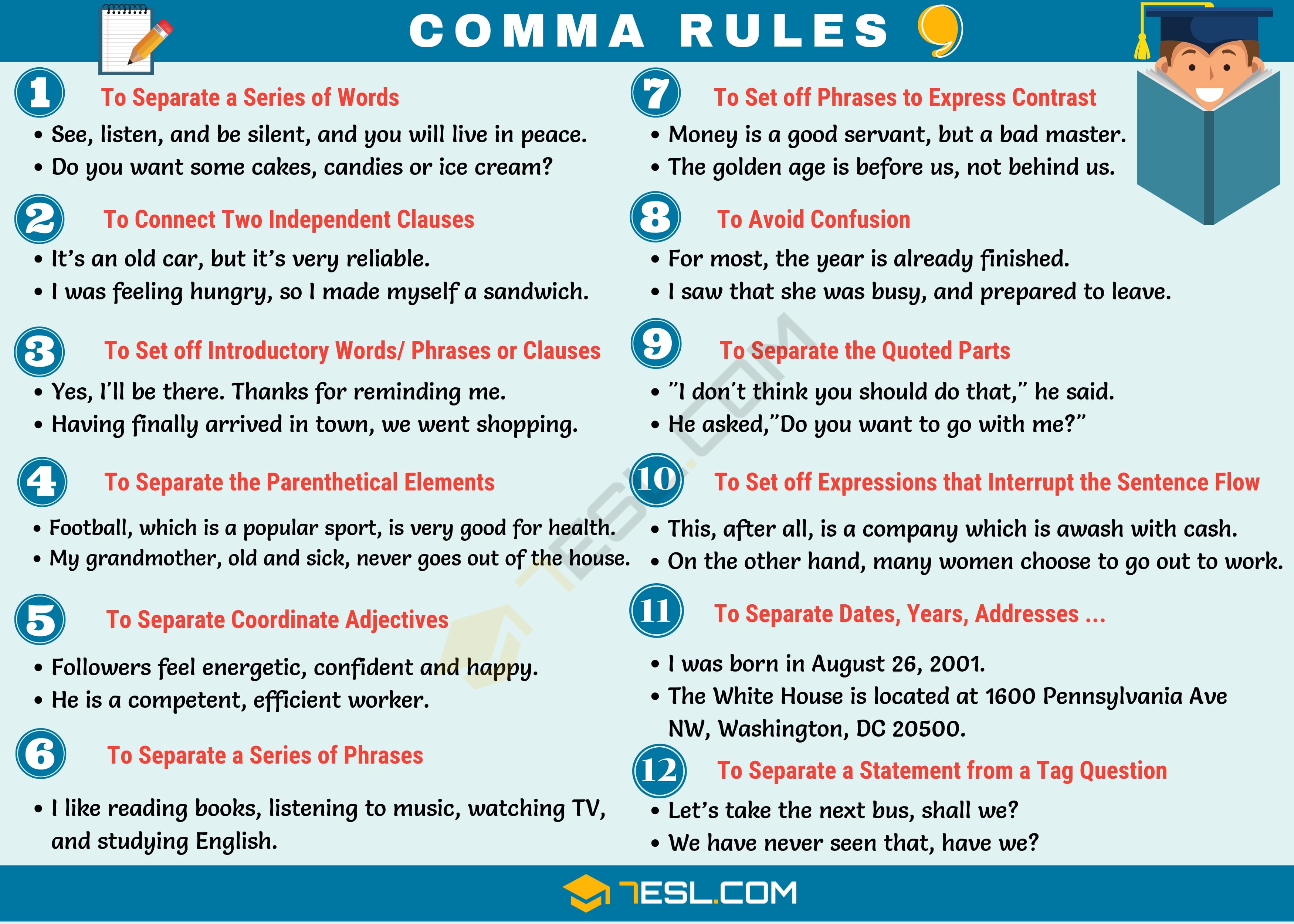


Comma When To Use A Comma With Important Comma Rules 7esl
Both of those sentences are valid, the only rule in this case is that you either include both commas or no commas The reason for this is because placing one comma after the word and splits the sentence into an incomplete main clause This is done by using a database of patients and as a result the factors which have any significance are obtainedThere aren't really and hard rules regarding the use of a comma before "too," only the preferences of the major style guides and a few norms Many writers add a comma before the word "too" (when it is intended to mean "also" or "as well") because that's how they feel it would sound most natural if read aloudIf it is part of a nonrestrictive or unessential clause or phrase, you need a comma On the other hand, if "including" is the start of a phrase that is essential to your sentence's meaning, you should not add a comma Although this rule is simple, it can be a bit tricky as the word "including" is ambiguous
First of all, both the version with a comma and the version without a comma are grammatically acceptable for both too and as well Especially in the case of too (in American English, when it is at the end of the sentence), the decision whether to put a comma is largely a matter of style, despite the fact that some speakers detect a difference in meaningThe strong north eastern wind blows off the central Anatolian landmass in summer as well as winter Attractions will include games, tombola, and a lucky dip as well as bricabrac sales The products are aimed at pharmaceutical and biotechnology companies, as well as university and public research labs He did not believe in the afterlife and considered death as the final phase of all soulsUpdated on February 12, Proper Punctuation In many sentences, if there is no comma before as, then as means "in the way that" or "while" When you insert a comma before as, its meaning changes to "because" Many writers (even good ones) forget to put a comma before the word as when one is needed (or they use a comma when they shouldn't) Writers tend to make this mistake when forming sentences in which as separates two independent clauses
If you want to use however as a sentence connector, you have to put a comma after it If you don't, you turn it into an adverb For example I decided to write a blog post about commas However, I opened a can of worms If you take the comma out, you make however an adverb I decided to write a blog post about commas However I opened a can of wormsSince you can substitute "and" for "as well as," no comma is needed As well as tuba, he also plays trombone Here, you need a comma after the prepositional phrase It's not essential to the main clause The banker counts as well as he whistles In a simple comparison, there's no need for a commaUse a comma with "As" as a conjunction As a conjunction, "as" is equivalent to "because" Do use a comma when "as" can be substituted with "because" The megaproject went billions of dollars over budget, as the cost of cement was unexpectedly increased



Correct Punctuation Academic Writing Libguides At University Of Reading



Writing A Sentence With Commas After Dates
If at the beginning of a sentence you would use a comma ( , ) after the phrase if used in the middle of a sentence and both sentences would stand alone it would include a semi colon before the phrase and comma after the phrase If only one sentence would stand alone you would use a comma before the phrase only Examples followFirst of all, both the version with a comma and the version without a comma are grammatically acceptable for both too and as well Especially in the case of too (in American English, when it is at the end of the sentence), the decision whether to put a comma is largely a matter of style, despite the fact that some speakers detect a difference in meaningAs well as Meaning additionally;


Commas In Compound Sentences Lessons Blendspace
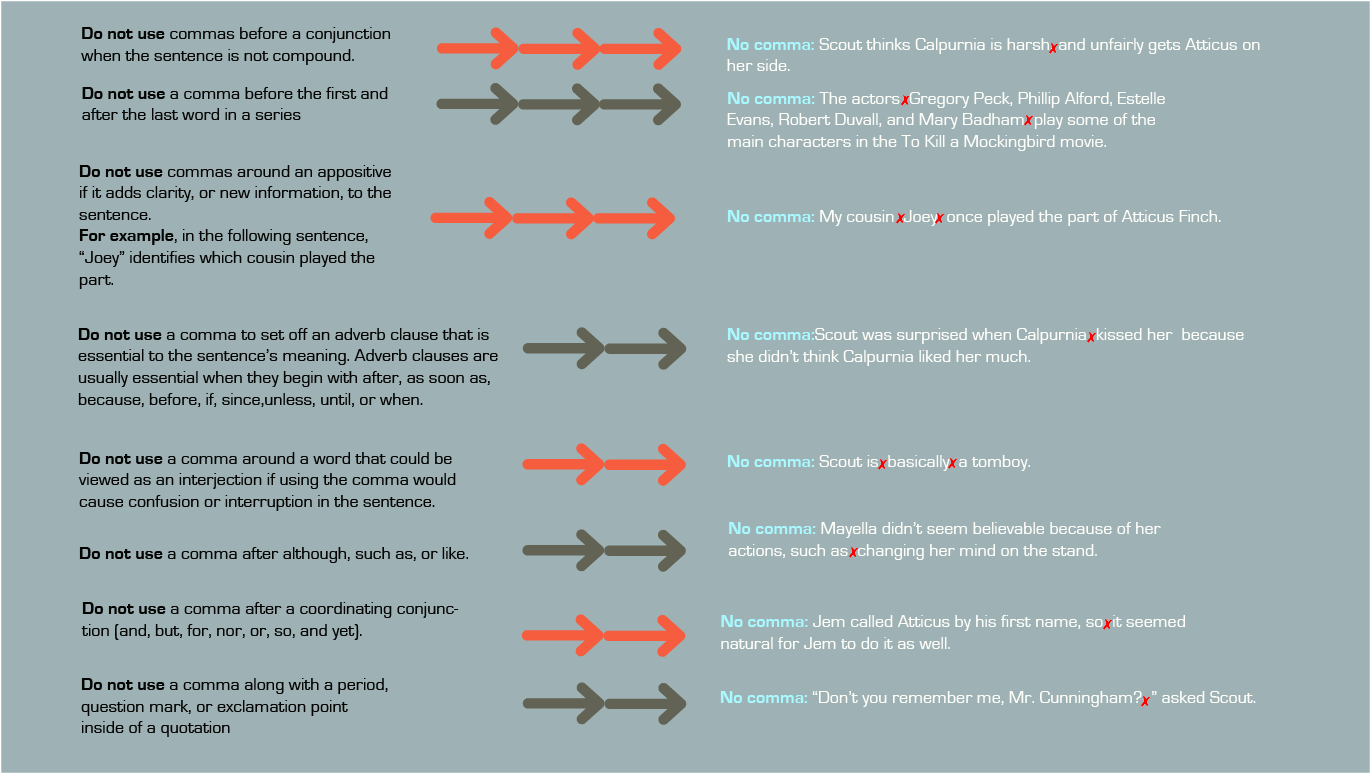


P2 Avoiding Unnecessary Commas Mytext Cnm
Many writers add a comma before the word "too" (when it is intended to mean "also" or "as well") because that's how they feel it would sound most natural if read aloud Remember that commas are used to indicate brief pauses between wordsCan be used in the place of the conjunction 'and' Example Sentences The sound as well as picture quality are best on this TV screen The soldiers as well as pilots know this code of conduct about the border security very wellThe suggestion that PromegaX makes about using commas is a good one, and it makes it easier to find the true subject of the sentence The rule is that the verb agrees with the first subject when two subjects are joined with "as well as" This is explained below in (1)
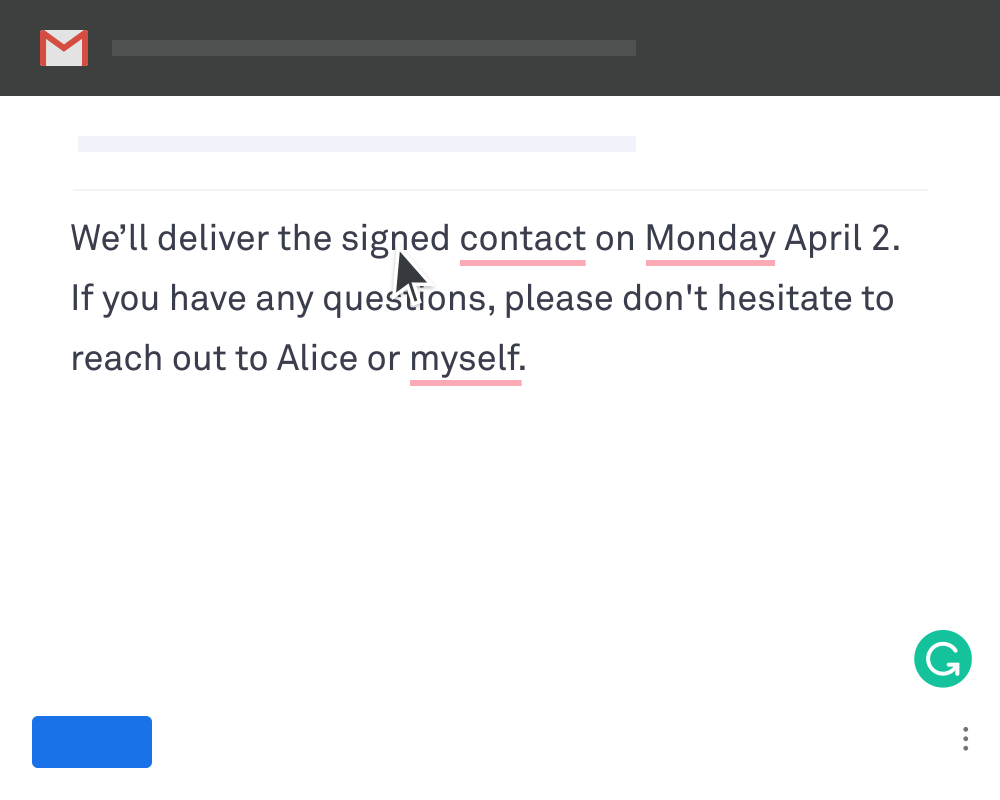


How To Write A Proper Email Make The Right Impression Grammarly
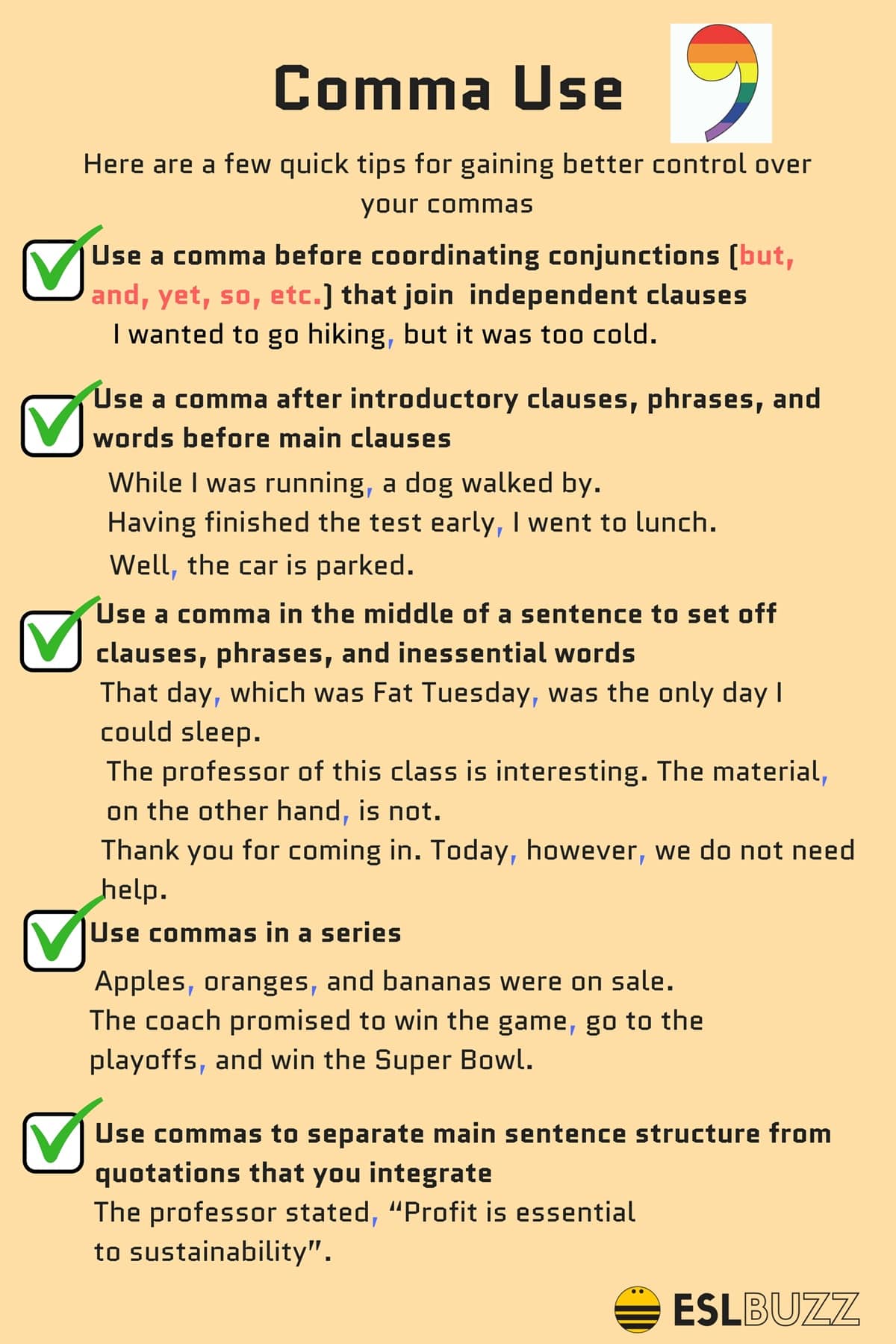


Comma Rules 8 Rules For Using Commas Correctly Eslbuzz Learning English
Use a comma with "As" as a conjunction As a conjunction, "as" is equivalent to "because" Do use a comma when "as" can be substituted with "because" The megaproject went billions of dollars over budget, as the cost of cement was unexpectedly increased However, we do use a comma for the above when it's written as an appositiveThe intervening "as well as" seems to create a compound subject, and a modifying prepositional phrase may itself contain one or more plural objects If the singular verb sounds awkward in such a sentence, it may be better to use the conjunction and instead WRONG The bride as well as her bridesmaids were dressed in mauveMost of the time, you don't need a comma before as well as Using a comma turns the thing you're talking about with as well as into an aside–information that's less important than the rest of the sentence That's where the judgment call comes in You have to decide whether the things you're connecting with as well as are equally important or not
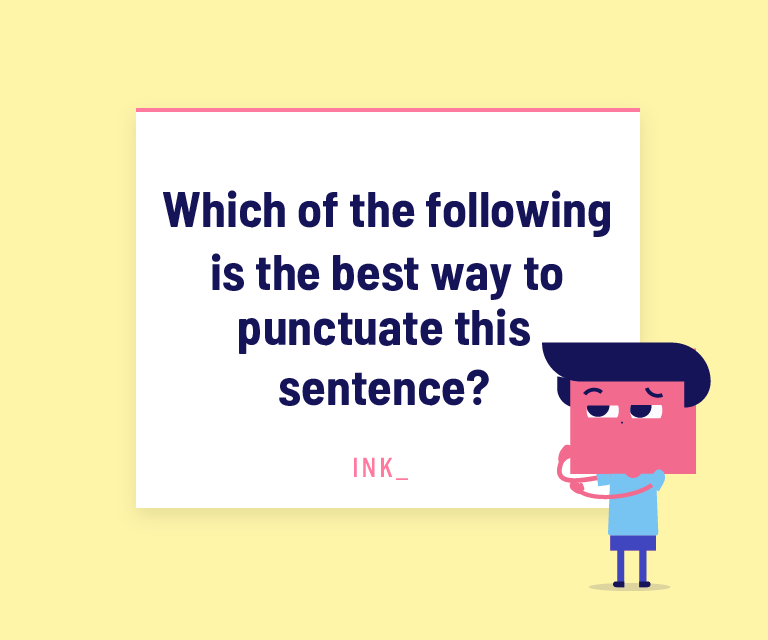


Is There A Comma Before And An Easy Guide To Using And In A Sentence Ink Blog
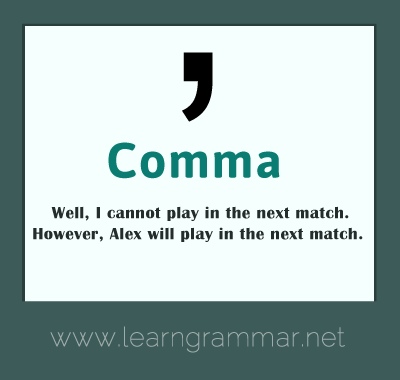


Punctuation Definition Types Usage Rules Learn English
If it comes at the beginning of a sentence, then you will need punctuation after the prepositional phrase And, when the adverbial phrase comes in the middle of the main clause , it is set off on both sides by a commaPersonally, I like to use a comma before "as" when it is used as a logical connector;Assuming that a comma alone is enough to connect two sentences in place of a period In order to use a comma, you must follow the equation of comma FANBOYS conjunction Using a semicolon without a complete sentence on either side


The Most Important Rules For Using Commas Without Looking Dumb


Commas In Compound Sentences Lessons Blendspace
The nonessential examples act as a descriptive phrase or appositive, providing more information about the noun that precedes them Like other appositives, these phrases are framed by commas in order to set them apart from the rest of the sentence A nonessential clause could also be written as a parenthetical or placed between em dashesAs well as means 'in addition to' We can combine two sentences using as well as Study the example given below Trees give us fruits They also give us shade We can combine these two sentences using as well as Trees give us fruits as well as shade Another example is given below She owns a car She owns a motorbikeUpdated on February 12, Proper Punctuation In many sentences, if there is no comma before as, then as means "in the way that" or "while" When you insert a comma before as, its meaning changes to "because" Many writers (even good ones) forget to put a comma before the word as when one is needed (or they use a comma when they shouldn't) Writers tend to make this mistake when forming sentences in which as separates two independent clauses
(144).jpg)


English Grammar Test Run Ons Comma Splices And Fragments Proprofs Quiz



The Use Of Commas Rule 1 To
Generally, the rule of thumb with all expressions such as "as well as," "along with," "in addition to," etc, is to put commas around the expression only when it interrupts the subject of the sentence from the verb Example Jenny, as well as her sister, went to the beach If the expression occurs elsewhere in the sentence, omit the commas ExampleThe most important thing to remember when using "such as" and "as well as" in professional writing is that they generally don't require commas unless they are part of a nonrestrictive clause Using commas with them might change the meaning of the whole sentenceThe suggestion that PromegaX makes about using commas is a good one, and it makes it easier to find the true subject of the sentence The rule is that the verb agrees with the first subject when two subjects are joined with "as well as" This is explained below in (1)
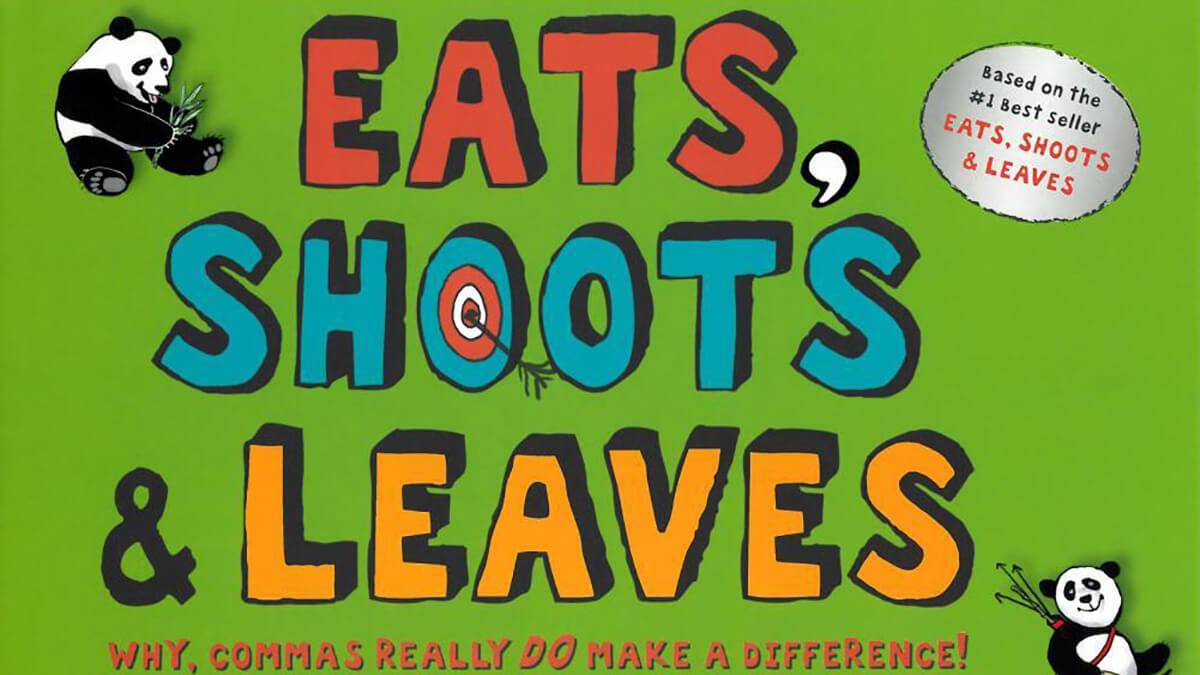


Reading Punctuation Is Essential For Fluency



Commas In A Series What Is A Comma A Comma Tells A Reader When To Pause Commas Make Sentences Easier To Understand And Can Also Change The Meaning Ppt Download
As well as Meaning additionally;Too and as well are used at the end of a sentence (As well is more formal than too) Also usually goes before the verb or adjective He likes chocolate I also like chocolate I like chocolate also I like chocolate, too I like chocolate as well The apples are delicious The pears are also delicious The pears are delicious also The pears are delicious, too The pears are delicious as wellAs well (as) meaning 'in addition' As well is an adverb which means 'also', 'too' or 'in addition' We usually use as well at the end of a clause We look forward very much to seeing you again and to meeting your wife as well As well as is a multiword preposition which means 'in addition to'
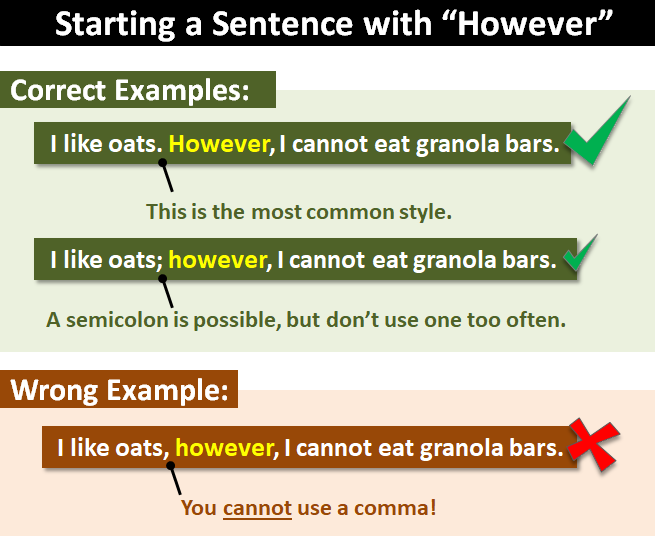


Starting A Sentence With However
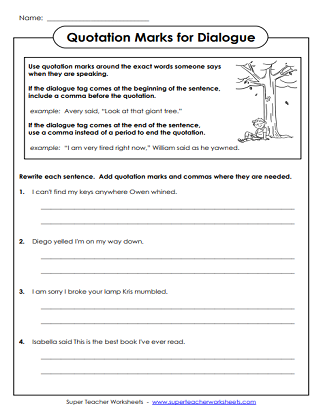


Using Commas Worksheets
Wwwuseinasentencecom English words and Examples of Usage use "as well as " in a sentence He was a great poet as well as a doctor Writer Jane Austen once suggested that a woman, especially if she has the misfortune of knowing anything, should conceal it as well as she can3 Use a pair of commas in the middle of a sentence to set off clauses, phrases, and words that are not essential to the meaning of the sentence Use one comma before to indicate the beginning of the pause and one at the end to indicate the end of the pause Here are some clues to help you decide whether the sentence element is essentialRule #2 Use a Comma After an Introductory Word or Phrase When a word or phrase forms an introduction to a sentence, you should follow it with a comma, as recommended by Purdue OWL Here are some examples However, she didn't love him back On the other hand, it might be best to wait until next week Rule #3 Use a Comma Before a Quotation



Why You Need To Be Using The Oxford Comma



Comma Knowledge Sentence Writing Imperative Sentences Punctuation
A comma (,) signifies a short pause in a sentence It can also divide clauses ("parts of a sentence") or items in a list And, it is often used to create division or to improve the clarity of a sentence Clearly, a comma has many roles as a punctuation mark Here are some more specifics The comma vs the semicolonThe general rule of thumb is that if the "now" is necessary to the meaning of the sentence, there cannot be a comma If, however, the "now" isn't necessary to the meaning to the sentence (just something extra), the "now" should typically be followed by a comma (which pertains to all introductory words)After all, you know what a comma is the punctuation used to mark a division in a sentence, like the separation of words, phrases, a clause, or a sequence And commas often accompany a conjunction, which is a word that connects phrases, clauses, or sentences (eg, and, because, but, and however) or any other words or expressions that provide a similar function (eg, in any case)
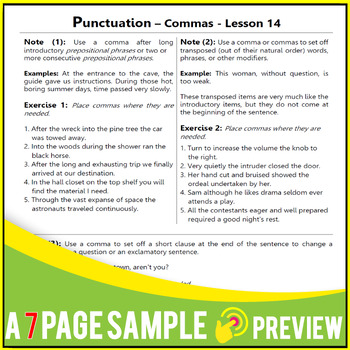


Capitalization And Punctuation Practice 30 Lessons Reviews Gr 5 6
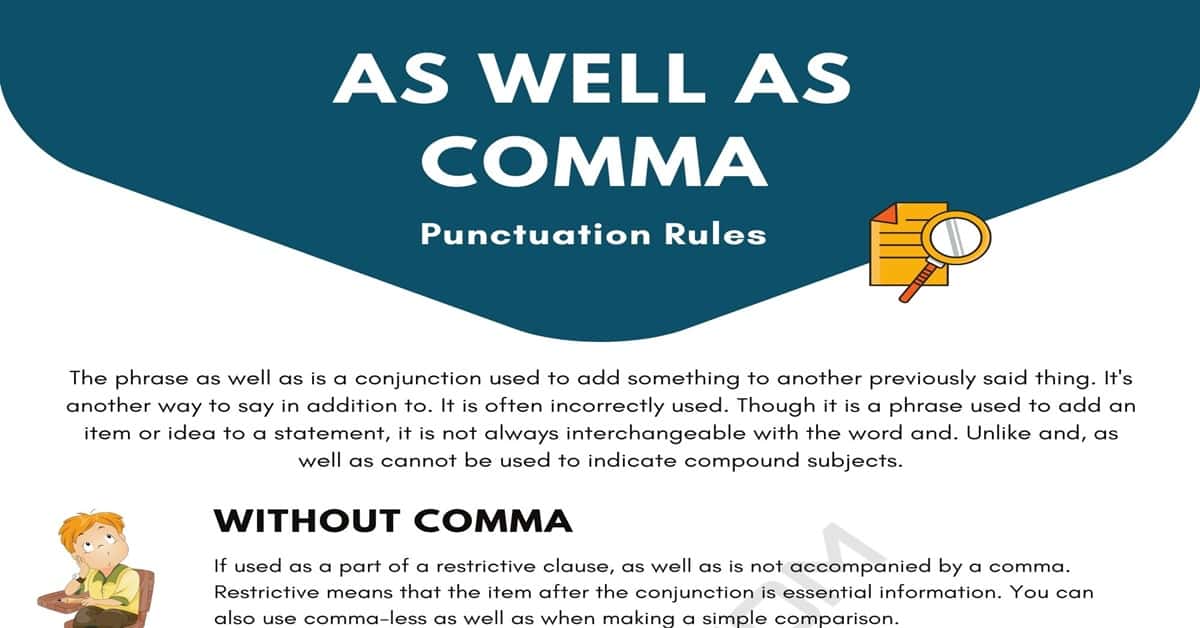


As Well As Comma Does As Well As Need A Comma 7esl
When the identifier makes sense in the sentence by itself, then the name is nonessential and you use a comma before it Otherwise, no comma That explains an exception to theHowever, if "as well as" is included in the middle of a sentence, it is usually a phrase and needs to have commas around it Think of it this way, if you can take "as well as" out of the sentence and have the sentence still make sense, you need to use commas The dog liked the cat as well as the mailmanCommas Only use a comma to separate 'as well as' in a sentence if it is used as a nonrestrictive clause, or one that does not change the sentence's meaning if removed See the examples below 7



Capitalization Punctuation Rules Capitalization Rules Rule 1 Capitalize The First Word Of A Quoted Sentence Examples He Said Treat Her As You Would Ppt Download
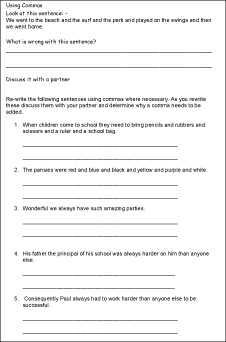


Commas
Can be used in the place of the conjunction 'and' Example Sentences The sound as well as picture quality are best on this TV screen The soldiers as well as pilots know this code of conduct about the border security very wellSentence examples 1 Hatred is blind as well as love 2 Business makes a man as well as tries him 3 Love lives in cottages as well as in courts 4 Fair words and foul deeds cheat wise men as well as fools 5 There is a holy, mistaken zeaWhen the "as well as" phrase is between the subject and verb, it is called an "intervening element" and always takes commas around it Third, the words "as well as" can be a conjunction, when it means "in addition" or "and," though it is not punctuated the same way as "and" because it is not a coordinate conjunction



Using Commas



Punctuation Poster Comma Rules Multi Age Abcteach
A comma is always necessary after however in these two sentence structures However as a conjunctive adverb However is a type of adverb that has a conjunctive function, and thus, it is called a conjunctive adverb for this reason Conjunctive adverbs are cohesive devices that aid in the logical flow of ideas in sentencesIf you're not using "as well" in the sense of an appositive phrase (eg She went to the grocer's as well as the baker's), no comma is required If you use "as well" in an appositive sense (eg I like football but I like golf, as well), then a comma is called forAs well as does not make subjects plural In the sentence John, as well as Mary, want to drop the course incorrect the verb want must agree with the noun preceding as well as in this case John, as well as Mary, wants to drop the course correct In other words, when as well as is part of the subject, the verb must agree with the noun before as well as



Proper Punctuation Comma Time4writing


Writing A Sentence With Commas After Dates
Well you might do it always and be wrong The prelimnary or resumptive use requires a comma because well is just a filler word But "Well loved by all, he gained fame" does not Well, I could go on but I won'tHowever, I learned while researching the answer to this questions, that there is no rule requiring this If the sentence is simple and the logic is clear, then there is no absolute need for a comma before "as"What is a comma (,)?
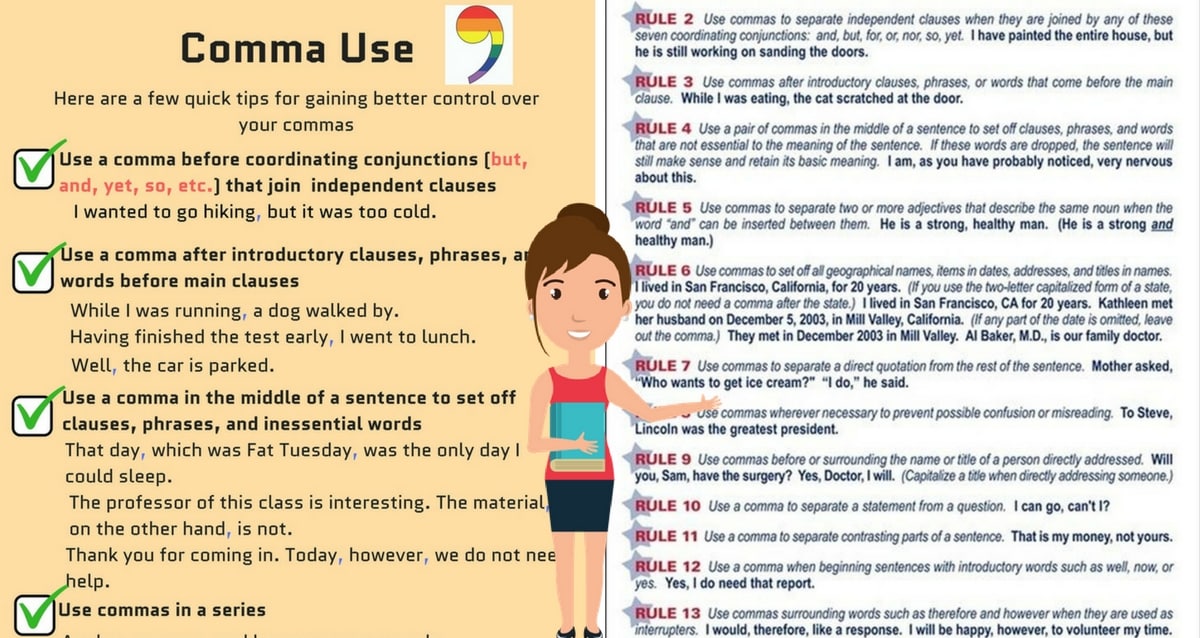


Comma Rules 8 Rules For Using Commas Correctly Eslbuzz Learning English
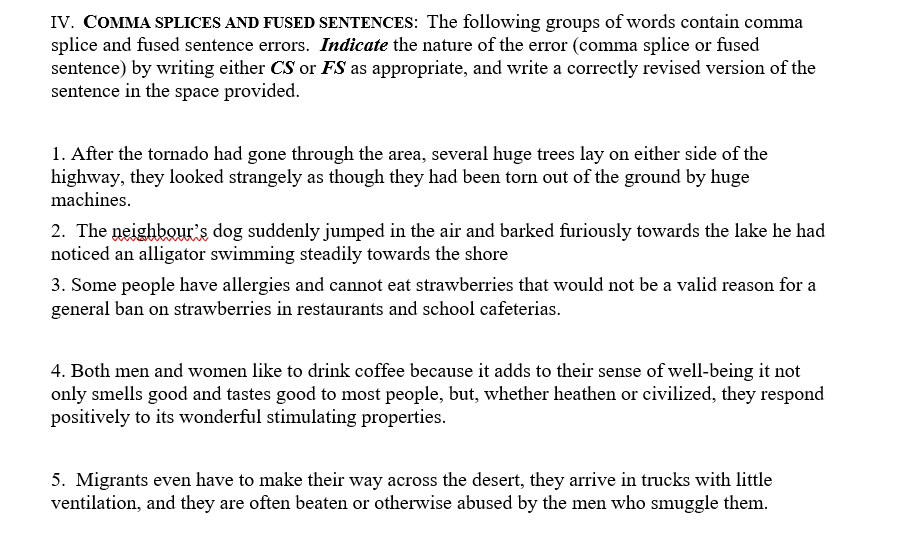


Solved Iv Comma Splices And Fused Sentences The Followi Chegg Com



How To Effectively Use Commas In Academic Writing Part 2 Enago Academy
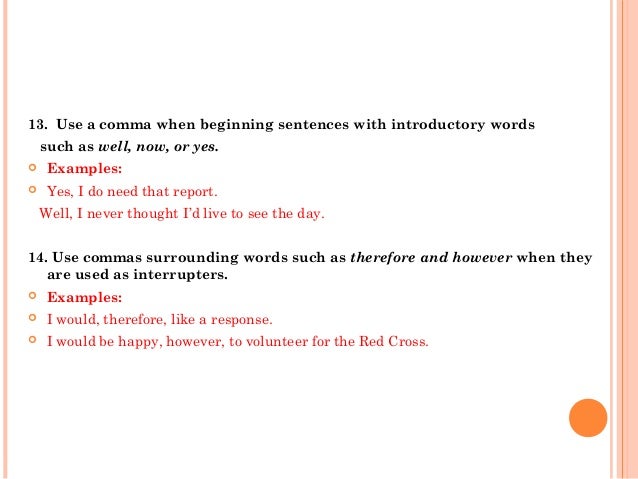


Punctuation



Punctuation Tip As Well As And Commas Youtube



Grammar Rules Where To Put A Comma 13 Comma Rules With Examples Stuckathomemom Com Writing Skills English Writing Skills Teaching Writing
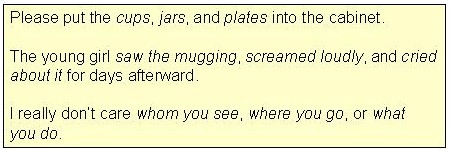


Major Comma Uses



Say Hello To The Exclamation Comma The Punctuation Mark You Never Knew You Needed Grammarly Blog



Punctuation Examples Worksheets Description For Kids



As Well As Meaning Comma Usage Example Sentences Video Lesson Transcript Study Com



Punctuation Rule Full Stop Comma Exclamation Question Semicolon Quotation Apostrophe Youtube



Master The Comma Comma Worksheets For 3rd Graders Education Com
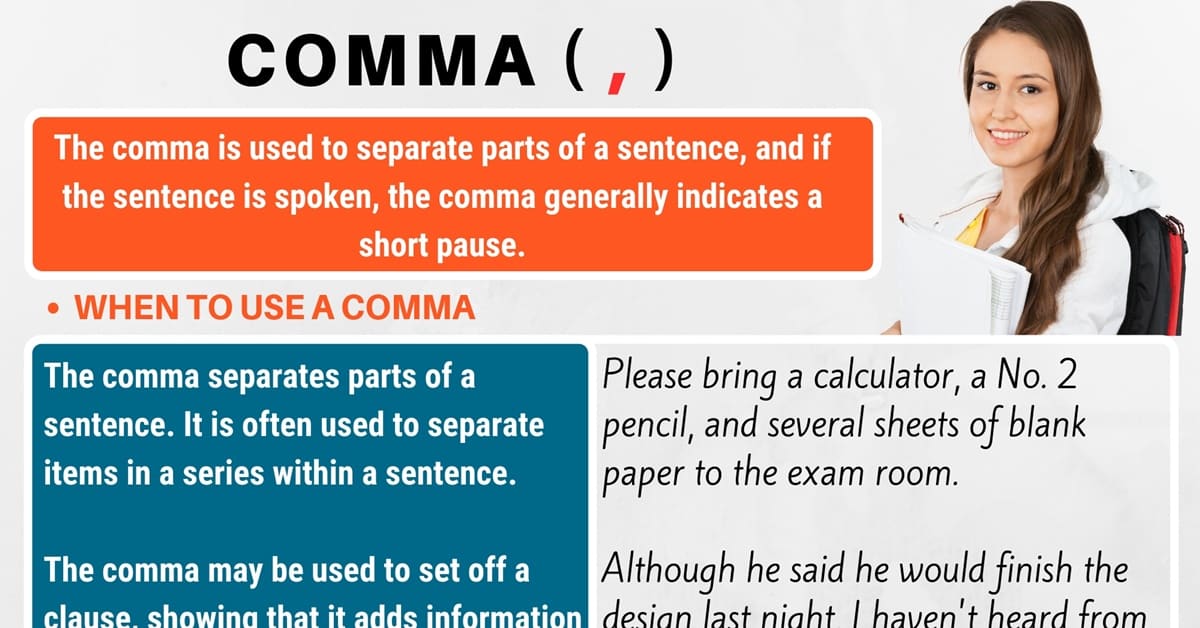


Comma When To Use Commas With Useful Comma Rules Punctuation Marks
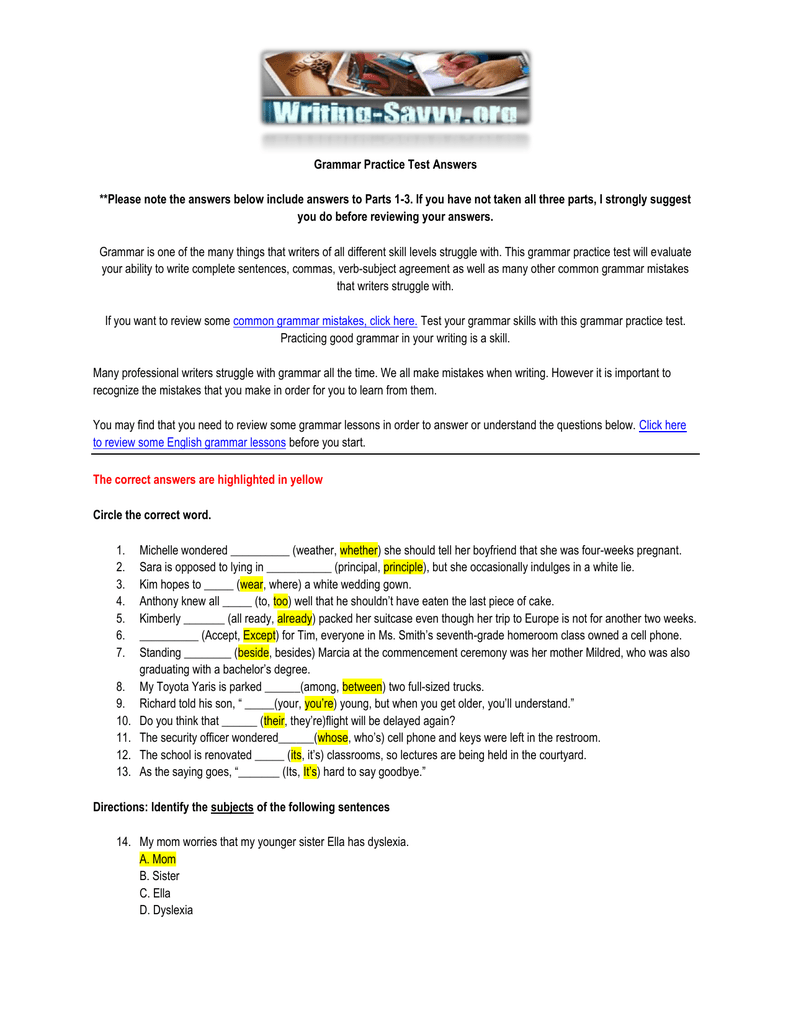


Grammar Practice Test Answers Please Note The Answers Below
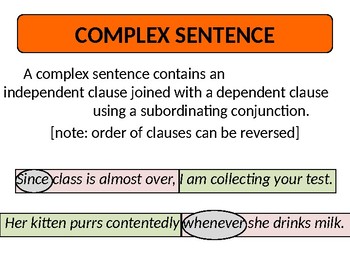


Comma Overview Extended Lesson On Simple Compound Complex Sentences



Why Do Young People Use Commas So Weirdly



How Should I Use Commas With Not Only But Also The Grammar Guide


The Most Important Rules For Using Commas Without Looking Dumb
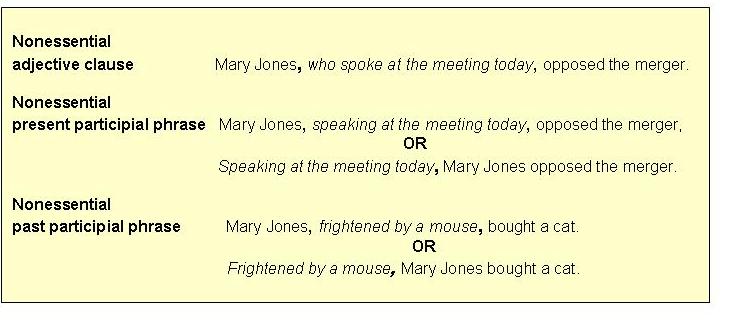


Commas
:strip_icc()/punctuating-dialogue-properly-in-fiction-writing-1277721-Final-5c3d01db46e0fb00010134d3.png)


Learn How To Punctuate Dialogue In Fiction Writing



Punctuate This Sentence For Me Online Online Tool Free


The Most Important Rules For Using Commas Without Looking Dumb
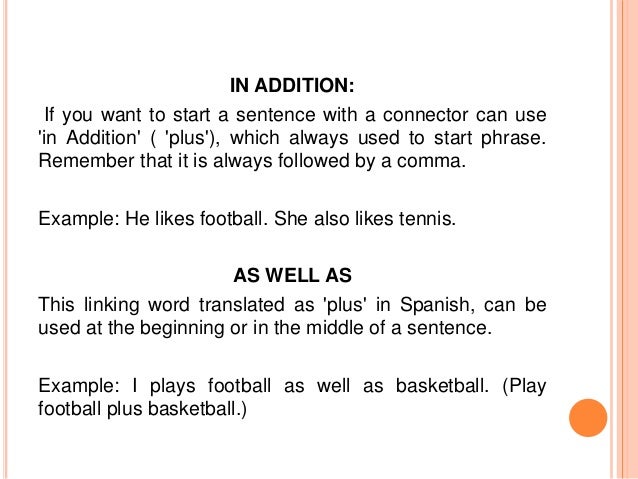


Linking Words Connectors



Comma When To Use A Comma With Important Comma Rules 7esl



Punctuation Comma
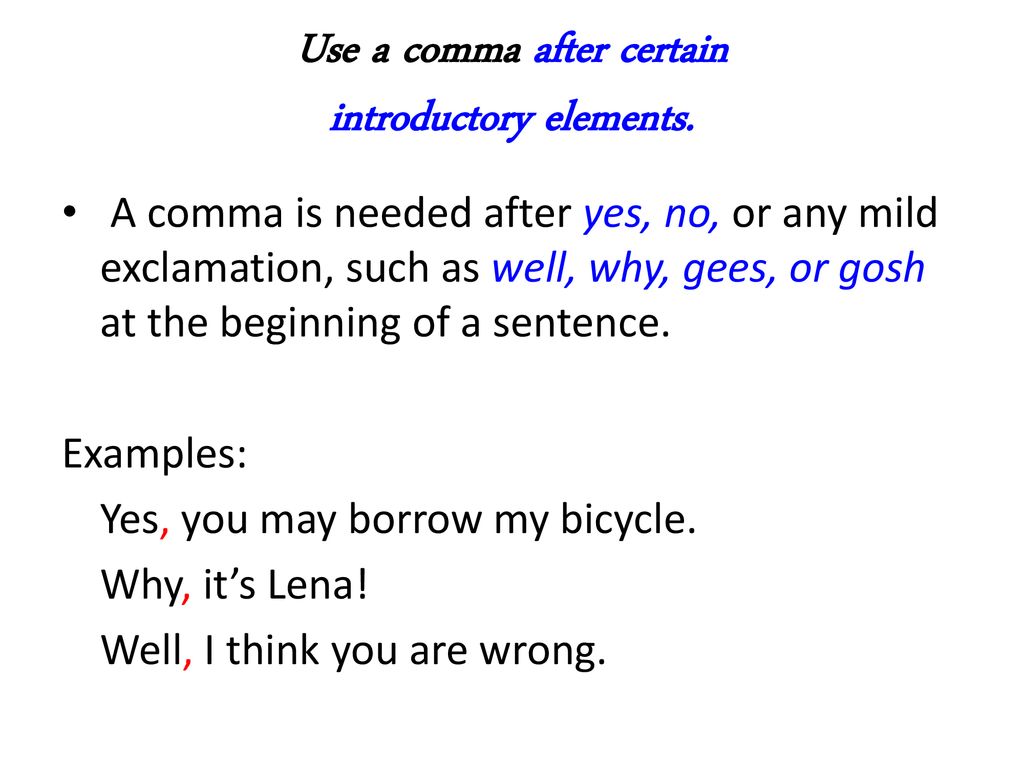


Using Commas To Set Off Yes No Words To Indicate Direct Addresses And To Set Off A Question From The Rest Of The Sentence Ppt Download



Punctuation Marks Names Rules And Useful Examples 7esl
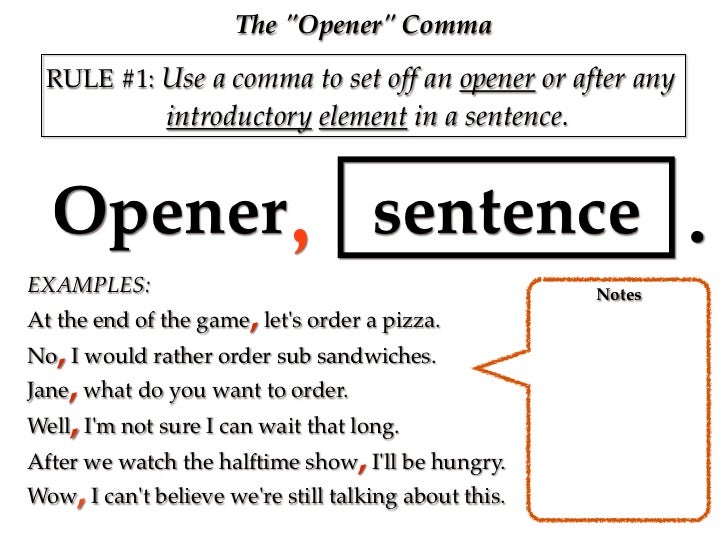


Comma Notes 1
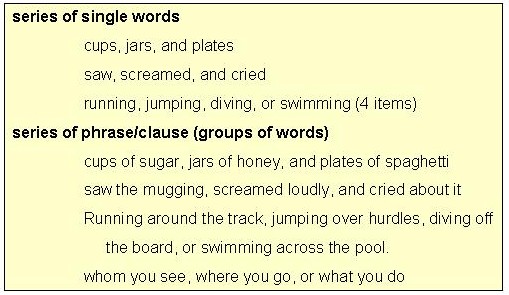


Major Comma Uses



How To Identify And Fix A Comma Splice 10 Steps With Pictures
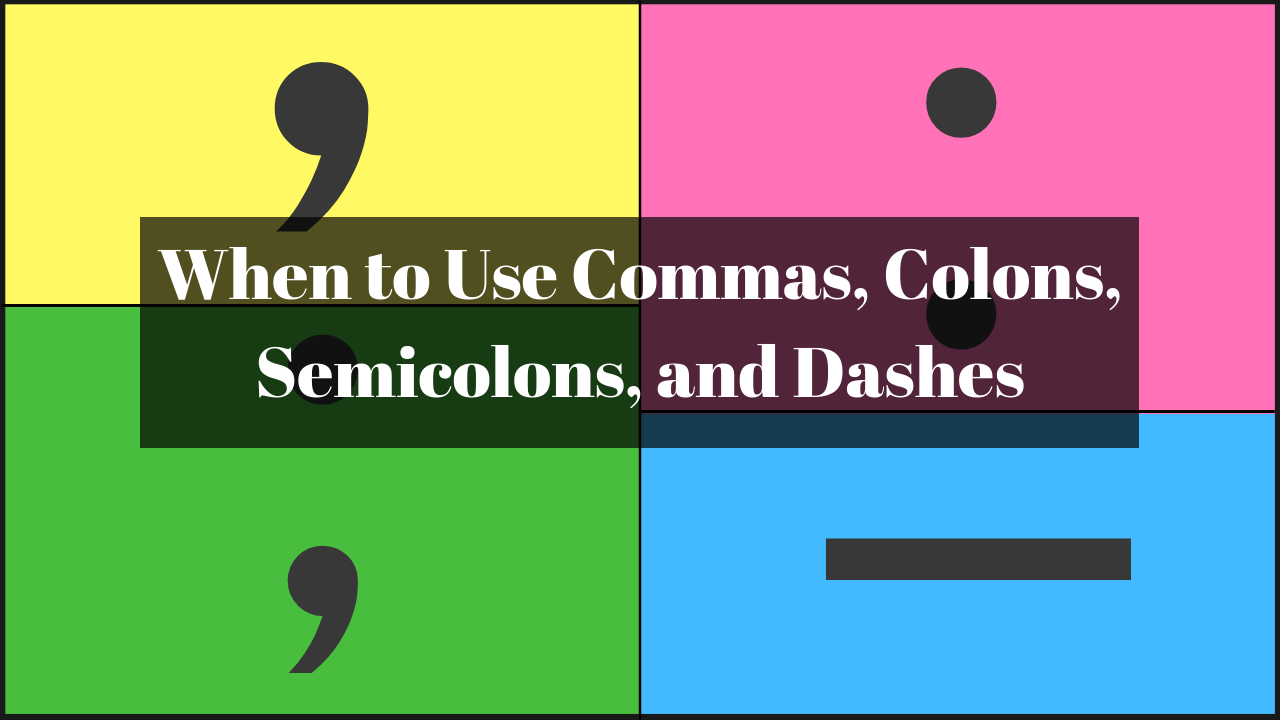


When To Use Commas Colons Semicolons And Dashes Wordvice



Should I Use A Comma After Interjections The Grammar Guide
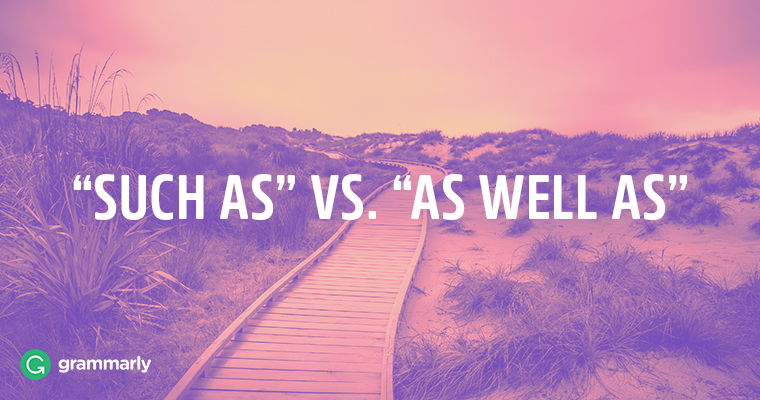


How To Use Such As And As Well As In Professional Writing Grammarly Blog
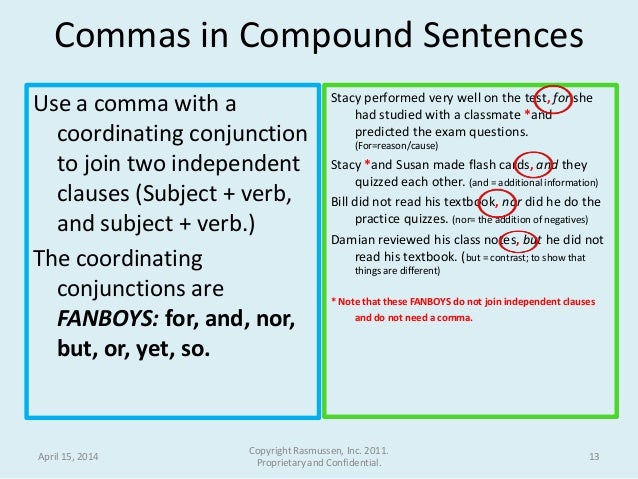


Punctuation And Mechanics With Video
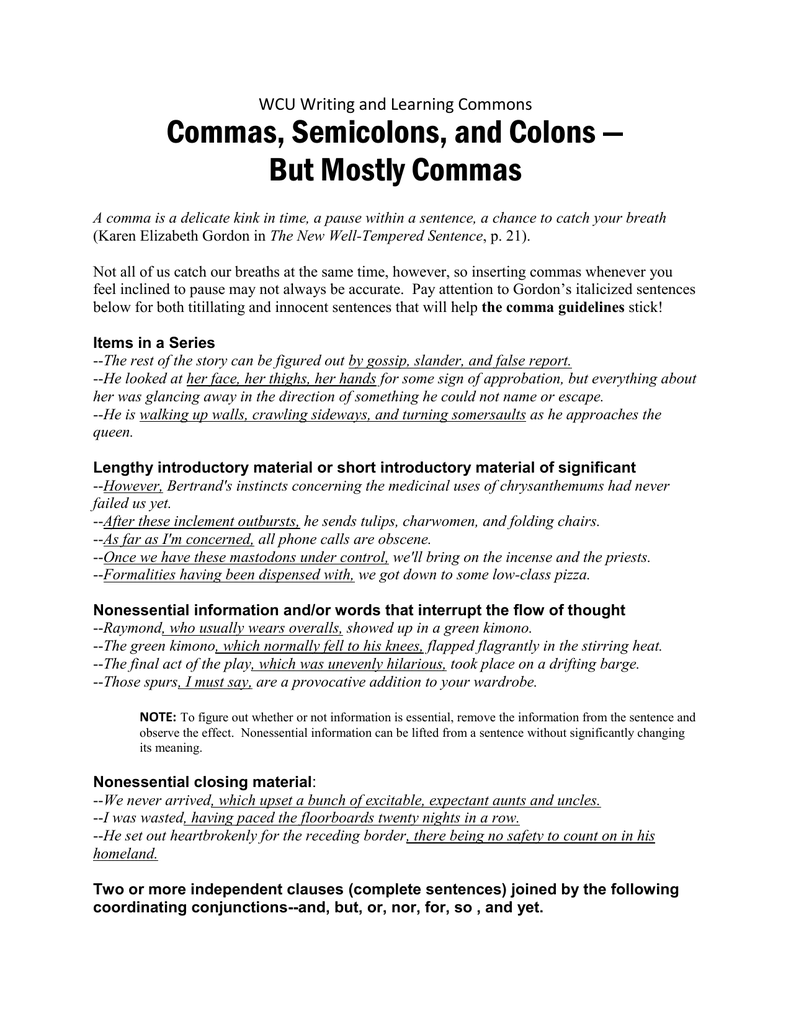


Commas Semicolons And Colons But Mostly Commas



4 Ways To Use Therefore In A Sentence Wikihow



As Well As Comma Does As Well As Need A Comma 7esl



Where Do Commas Belong Grammar Activity Paths To Technology Perkins Elearning



Commas For Parenthesis
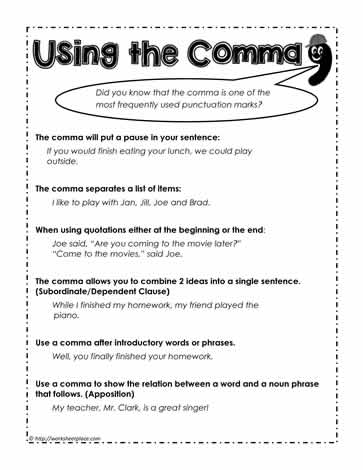


Comma Rules How To Use The Comma Worksheets
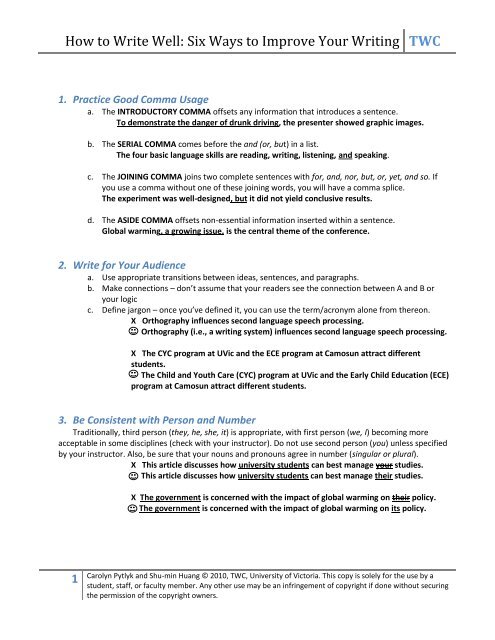


How To Write Well
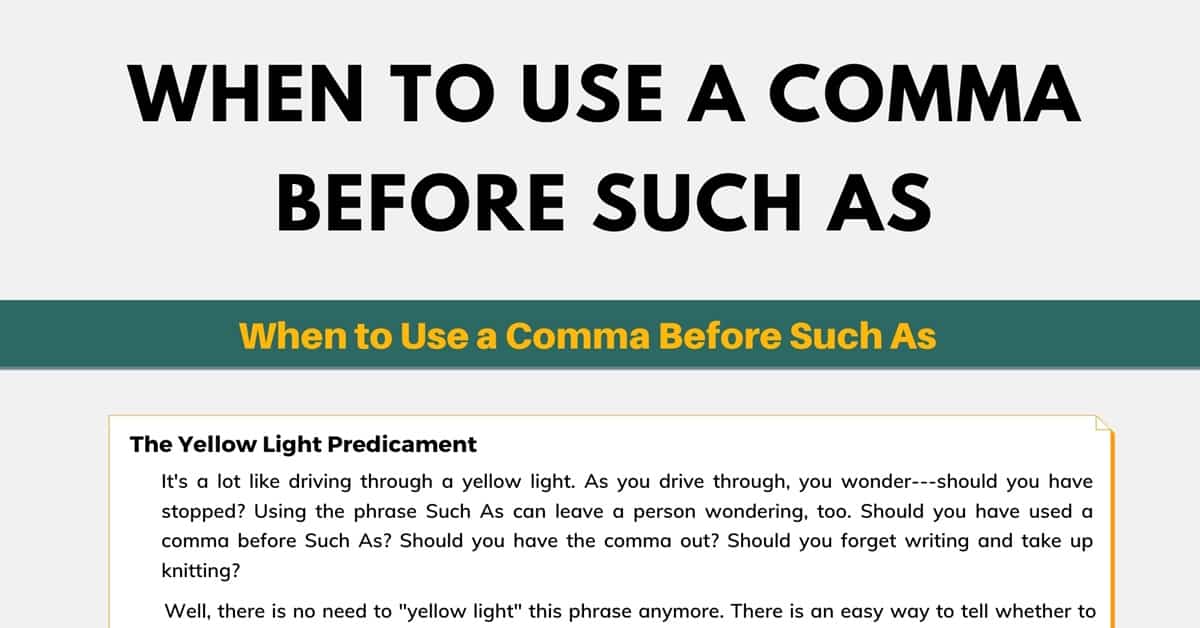


Comma Before Such As When To Use A Comma Before Such As 7esl
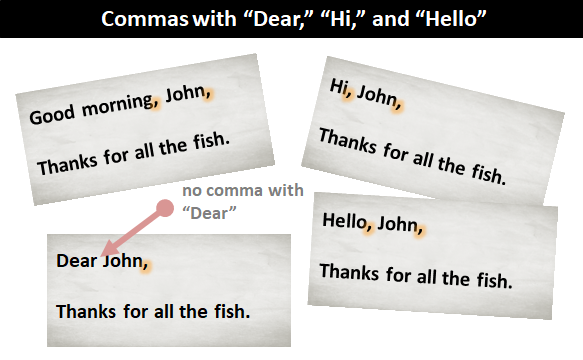


Do You Use A Comma With Dear Hello And Hi
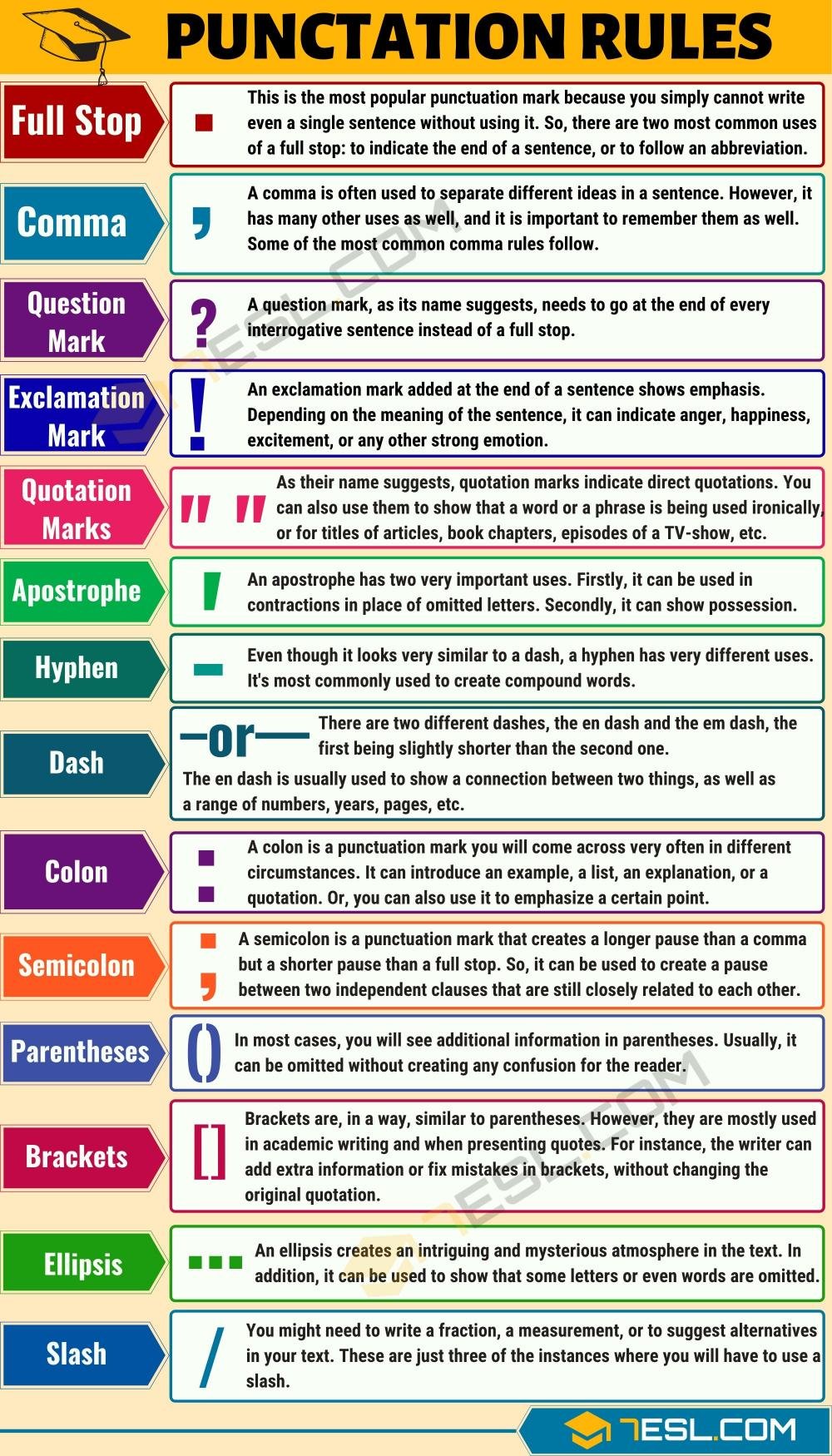


English Punctuation Rules
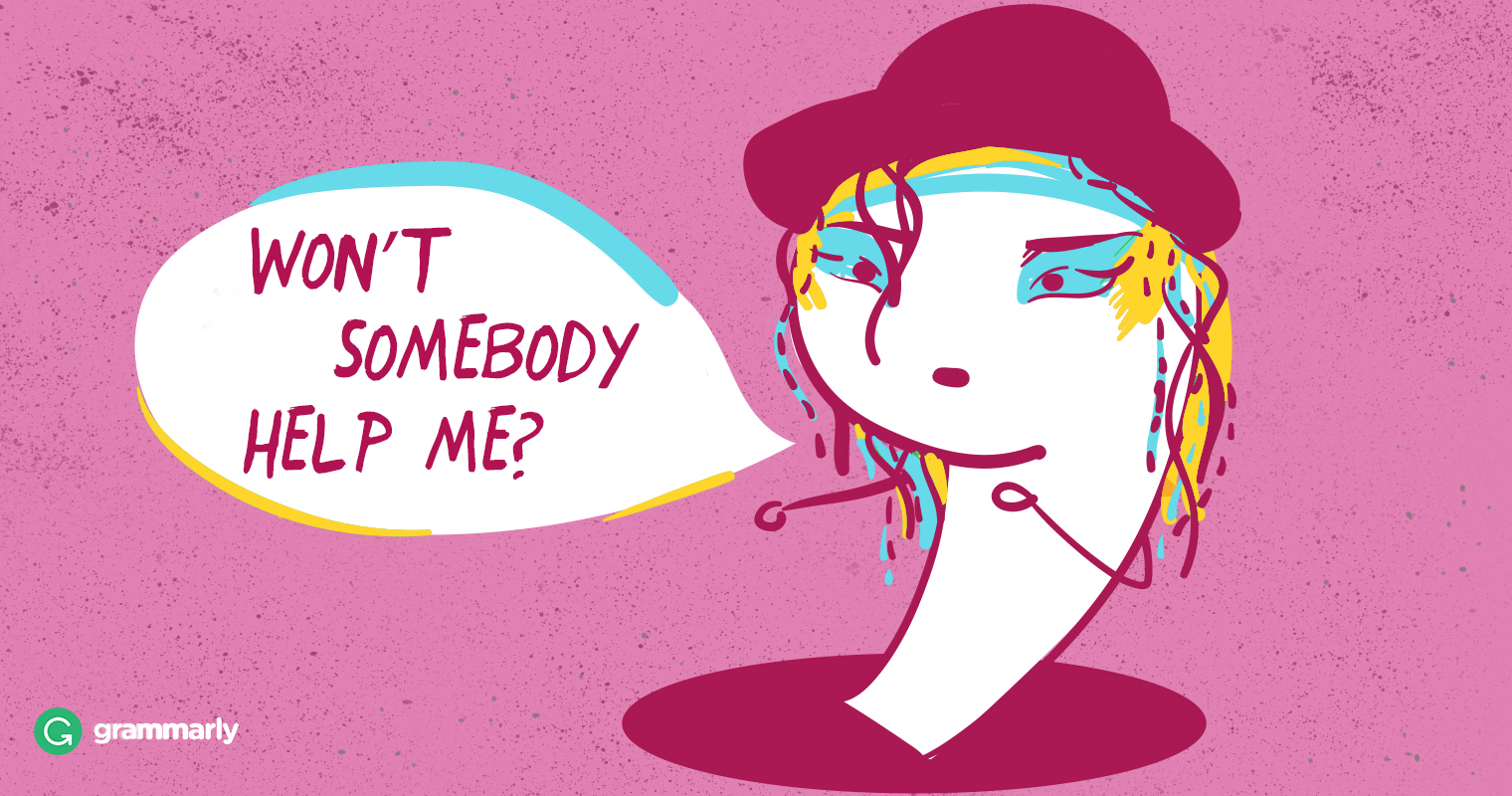


As Well As Comma Grammarly Blog



Commas Punctuation Worksheet Have Fun Teaching
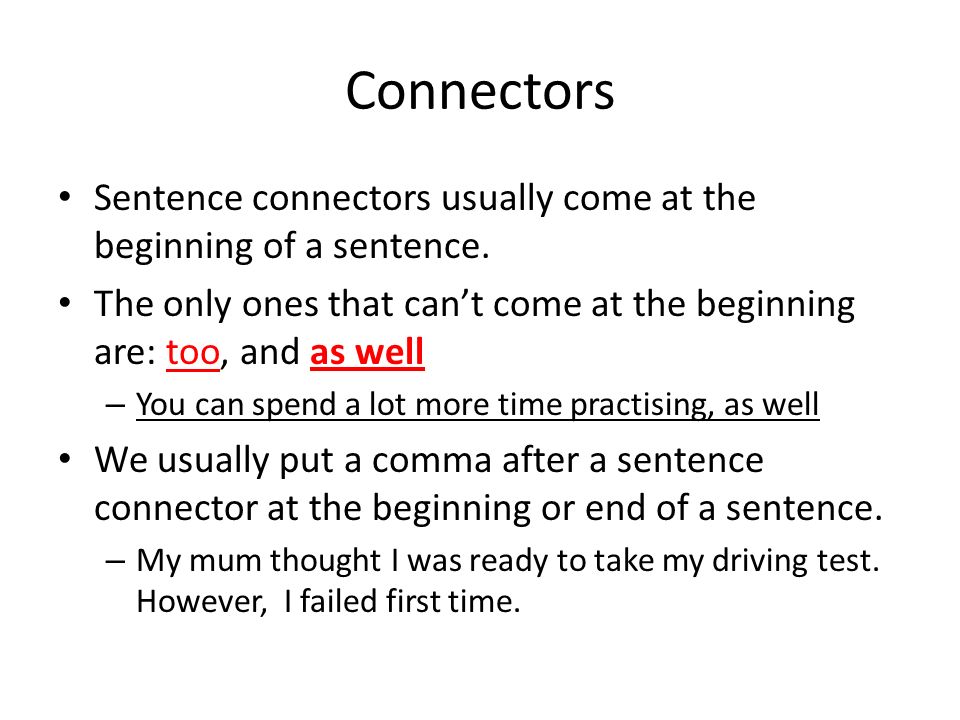


Connectors Conjunctions Ppt Video Online Download



Comma Capers Using Commas In Sentences Printable Skills Sheets
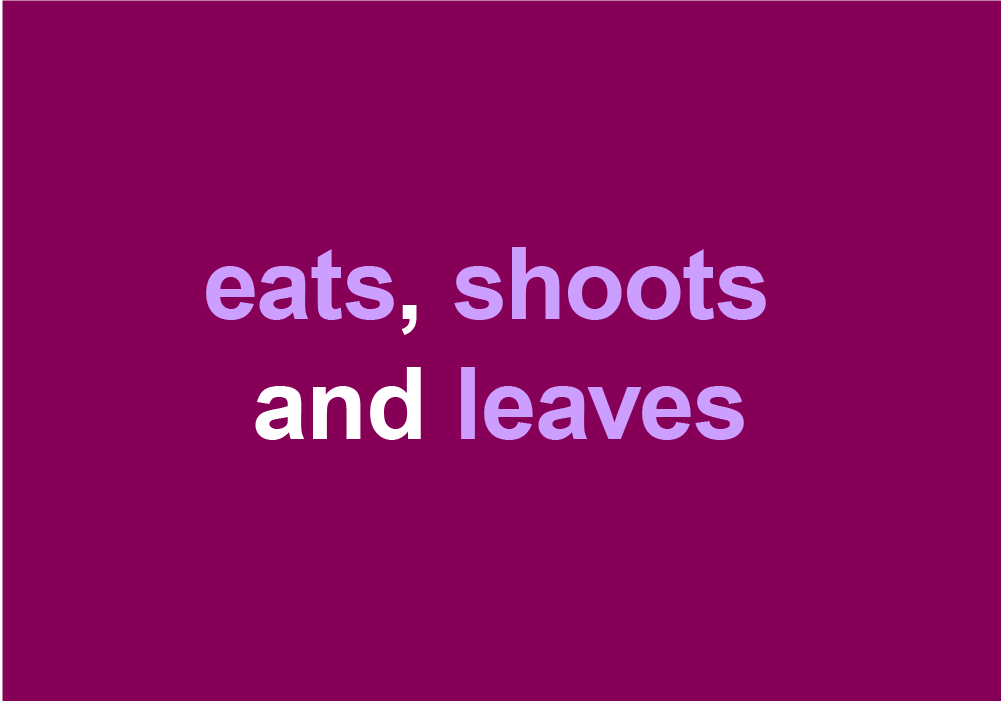


Do We Need The Oxford Comma Here Are 9 Hilarious Real World Examples Thesaurus Com



Quiz Worksheet How To Use As Well As In A Sentence Study Com



Comma Rules 1 3 Rule 1 Use A Comma To Separate Items In A Series Ppt Download



Using Commas In A Series Quiz Game Education Com



When To Use A Comma With Too Grammar Girl



When To Use Commas Before Quotations
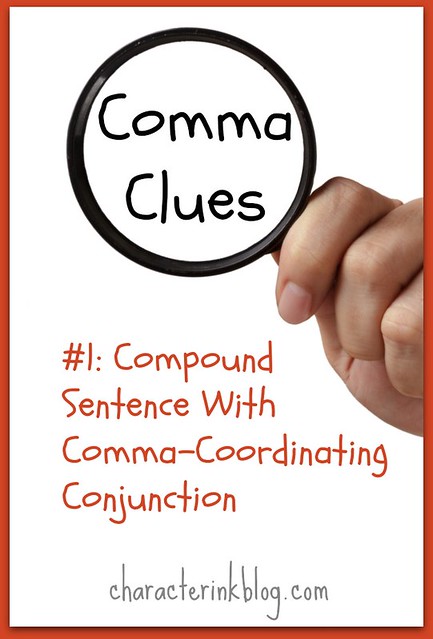


Comma Clues 1 Creating A Compound Sentence With A Comma Coordinating Conjunction Cc Character Ink
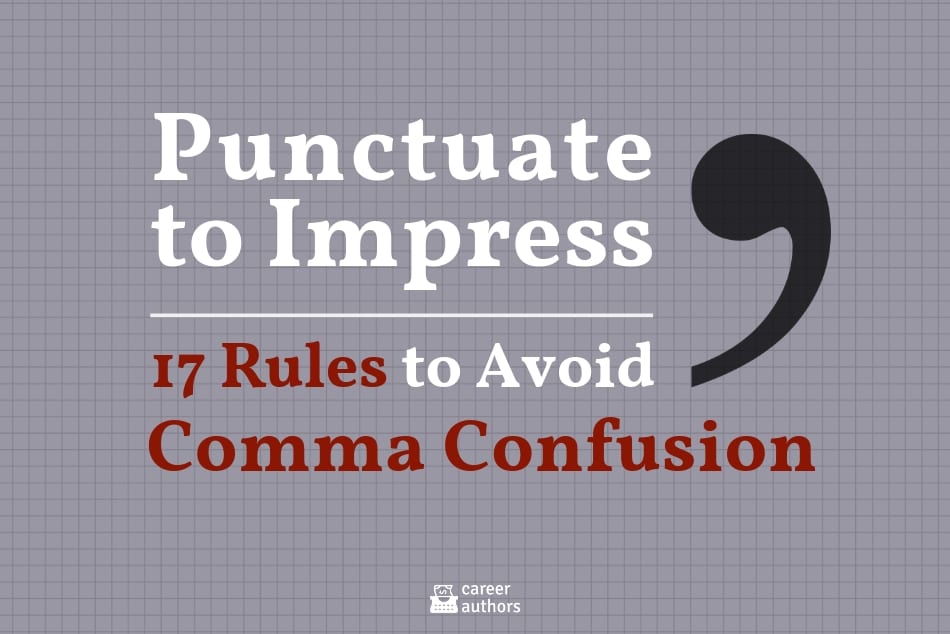


Punctuate To Impress 17 Rules To Avoid Comma Confusion Career Authors
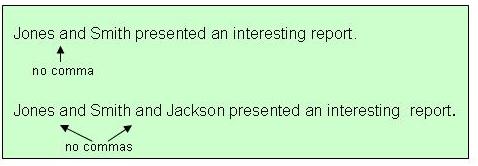


Commas
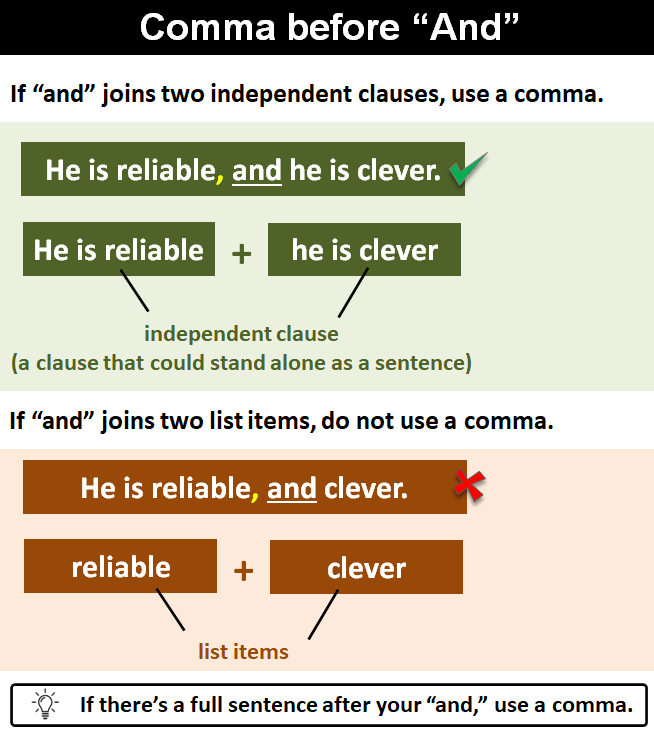


Commas Before Conjunctions E G And Or But



How To Use A Comma In A Compound Sentence 10 Steps



Should I Use A Comma After An Introductory Adverb Like Apparently The Grammar Guide



The Extra Comma In Sentences Is Driving Me Crazy
:max_bytes(150000):strip_icc()/RulesforUsingComma-5b209d0e1d64040037a65555.png)


The Comma In Punctuation
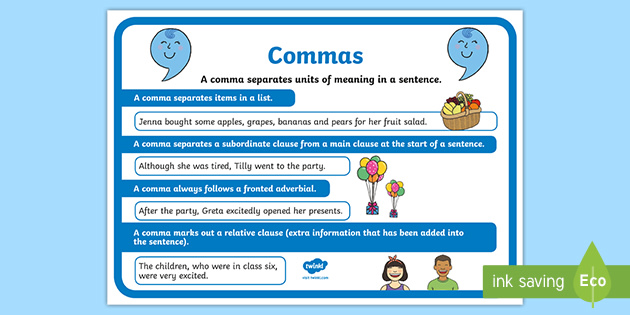


Commas Punctuation Poster Primary Resources
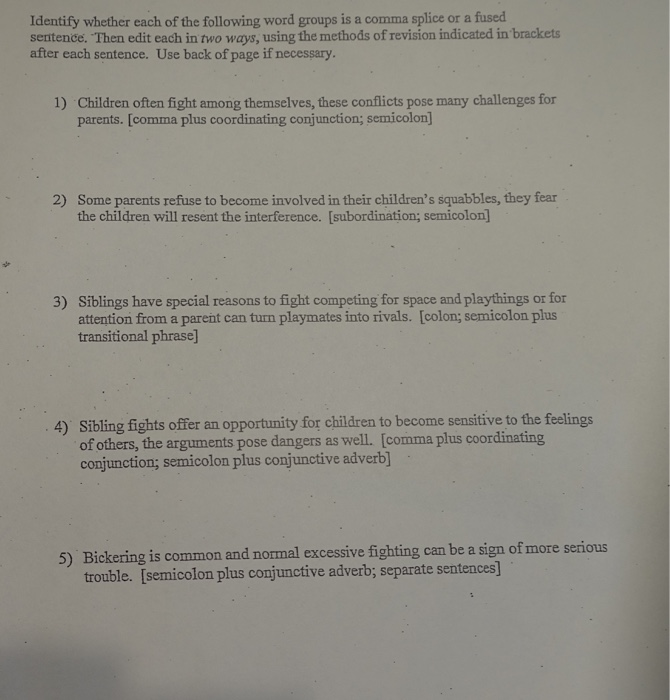


Super Simple Comma Exercise Basic English Questio Chegg Com



Commas With Yes And No Video Lesson English Videos Videoclass
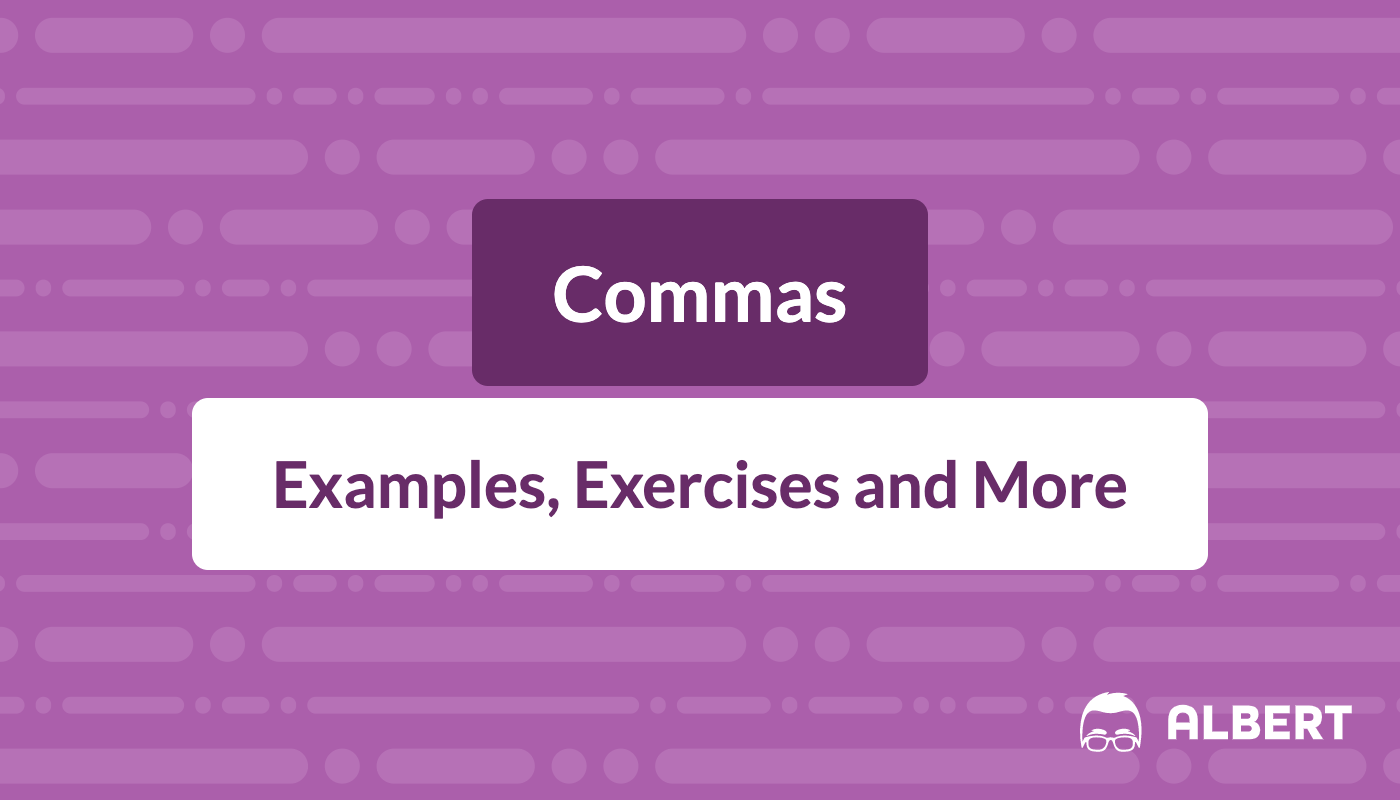


Commas Definition Examples Exercises Albert Io
/punctuating-dialogue-properly-in-fiction-writing-1277721-Final-5c3d01db46e0fb00010134d3.png)


Learn How To Punctuate Dialogue In Fiction Writing



Where Do Commas Belong Grammar Activity Paths To Technology Perkins Elearning
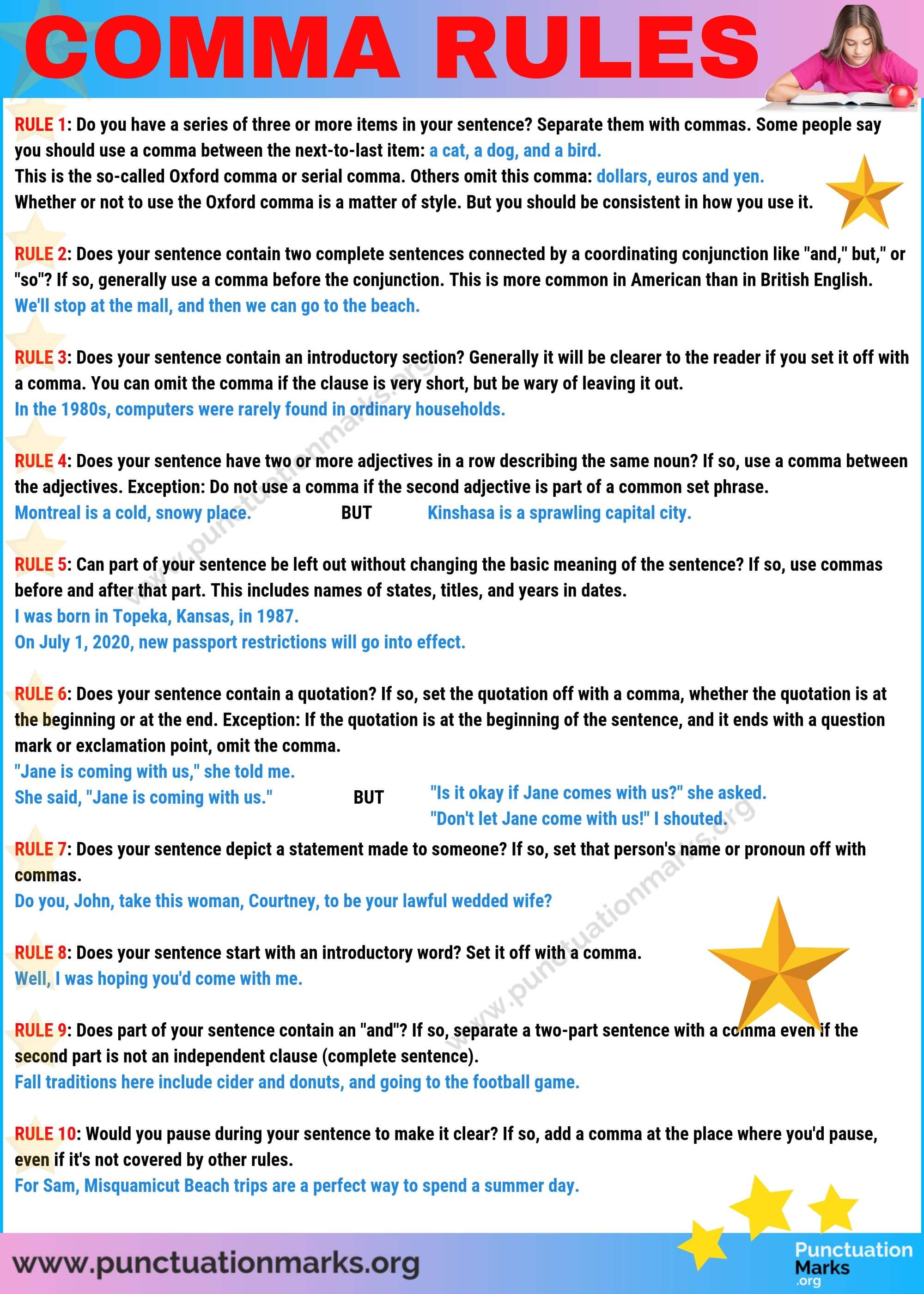


Comma When To Use Commas With Useful Comma Rules Punctuation Marks



Sometimes He Uses Venn Diagrams To Explain Comma Usage North Of Andover


